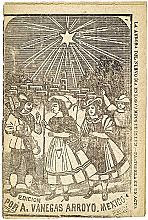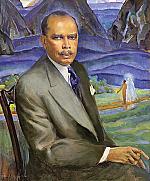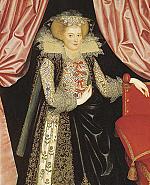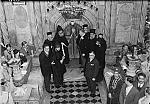Demons, tricks, and belief
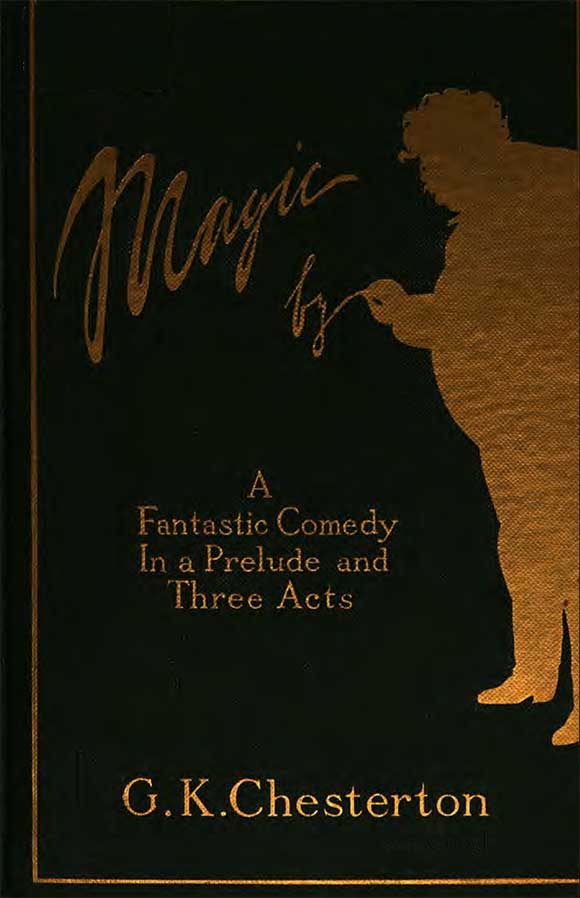
[G. K. Chesterton, Magic—G. Putnam's Sons, 1914]
In G. K. Chesterton’s 1913 play Magic, the supernatural intrudes into a rural family through a wandering conjuror in love with Patricia, a Christian, who has mistaken him for an elf. The family doctor, Patricia’s brother Morris, and a clergyman named Smith are all either agnostics or atheists.
DOCTOR. [to PATRICIA.] Well, it must be nice to be young and still see all those stars and sunsets. We old buffers won’t be too strict with you if your view of things sometimes gets a bit—mixed up, shall we say? . . . We should only say, “Dream as much as you like. . . . But do not quite forget the difference.”
PATRICIA. What difference?
DOCTOR. The difference between the things that are beautiful and the things that are there. That red lamp over my door isn’t beautiful; but it’s there. You might even come to be glad it is there, when the stars of gold and silver have faded. I am an old man now, but some men are still glad to find my red star. . . .
PATRICIA. . . . Yes, I know you are good to everybody. But don’t you think there may be floating and spiritual stars which will last longer than the red lamps? . . .
MORRIS. You were right on the spot, Doc, when you talked about that red lamp of yours. That red lamp is the light of science that will put out all the lanterns of your turnip ghosts. . . . [Points at it in exalted enthusiasm.] Your priests can no more . . . change its colour . . . than Joshua could stop the sun and moon . . . .
[The CONJURER has a demon turn the light blue.]
MORRIS. [Splitting the silence on a high unnatural note.] Wait a bit! Wait a bit! I’ve got you! I’ll have you! . . . [He strides wildly up and down the room, biting his finger.] You put a wire . . . no, that can’t be it . . . Could it be done with mirrors? [He clasps his brow.] You have a mirror . . . [Suddenly, with a shout.] I’ve got it! I’ve got it! Mixture of lights! Why not? If you throw a green light on a red light. . . .
SMITH. [Quietly to the DOCTOR.] You don’t get blue.
DOCTOR. [Stepping across to the CONJURER.] If you have done this trick, for God’s sake undo it. [After a silence, the light turns red again.]
MORRIS. [Dashing suddenly to the glass doors and examining them.] It’s the glass! You’ve been doing something to the glass!. . .
CONJURER. [Still without moving.] I don’t think you will find anything wrong with the glass.
MORRIS. [Bursting open the glass doors with a crash.] Then I’ll find out what’s wrong with the lamp. [Disappears into the garden.]. . . .
SMITH. Here is a poor boy who may be going mad. Suppose you had a son in such a position, would you not expect people to tell you the whole truth. . . ?
CONJURER. Yes. And I have told you the whole truth. Go and find out if it helps you. . . .
SMITH. You know quite well it will not help us.
CONJURER. Why not?
SMITH. . . . Because he would not believe it.
CONJURER. [With a sort of fury.] Well, does anybody believe it? Do you believe it?
SMITH. . . . Your question is quite fair. Come, let us sit down and talk about it. Let me take your cloak.
CONJURER. I will take off my cloak when you take off your coat.
SMITH. [Smiling.] Why? Do you want me to fight?
CONJURER. [To SMITH, violently.] I want you to be martyred. I want you to bear witness to your own creed. I say these things are supernatural. I say this was done by a spirit. The Doctor does not believe me. He is an agnostic. . . . The Duke does not believe me; he cannot believe anything so plain as a miracle. But what the devil are you for, if you don’t believe in a miracle? What does your coat mean, if it doesn’t mean that there is such a thing as the supernatural? . . . [Exasperated.] Why the devil do you dress up like that if you don’t believe in it? [With violence.] Or perhaps you don’t believe in devils?
SMITH. I believe. . . . [After a pause.] I wish I could believe.
CONJURER. Yes. I wish I could disbelieve....
SMITH. It is much more marvellous to explain a miracle than to work a miracle. What was your explanation, by the way?
CONJURER. I shall not tell you.
SMITH. [Starting.] Indeed? Why not?
CONJURER. Because God and the demons and that Immortal Mystery that you deny has been in this room tonight. Because you know it has been here. Because you have felt it here. . . .
By G. K. Chesterton
[Christian History originally published this article in Christian History Issue #152 in 2024]
Next articles
From Aztlán with love
Mexican American religious and ethnic identity played out on the stage
Daniel F. Flores“Were you there when they crucified my Lord?”
In liturgical traditions, such as the Orthodox Church, believers who participate in Holy Week’s drama enter into Christ’s passion.
Cyril Gary JenkinsSupport us
Christian History Institute (CHI) is a non-profit Pennsylvania corporation founded in 1982. Your donations support the continuation of this ministry
Donate



